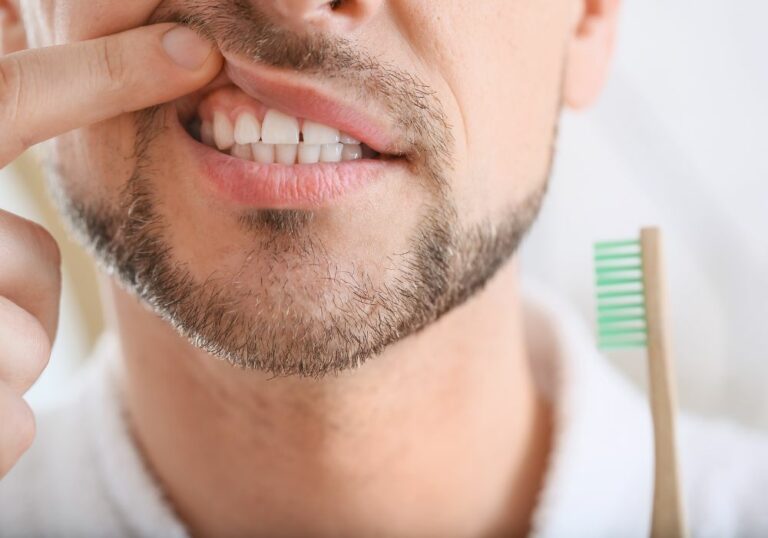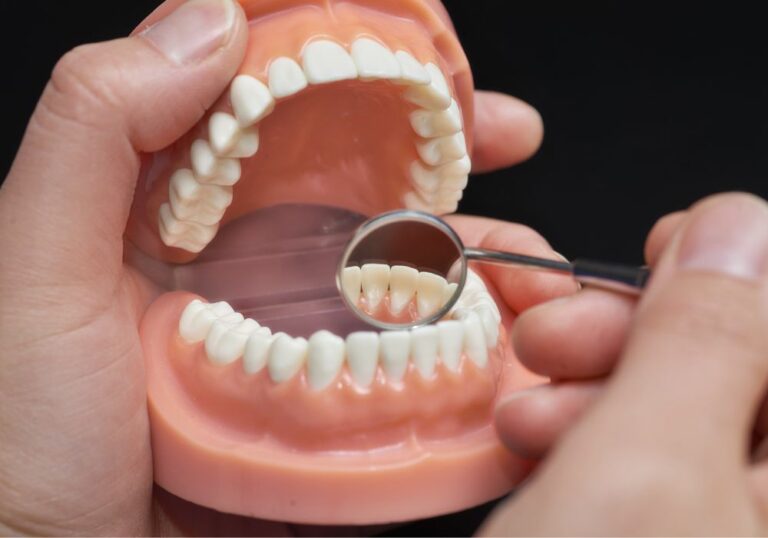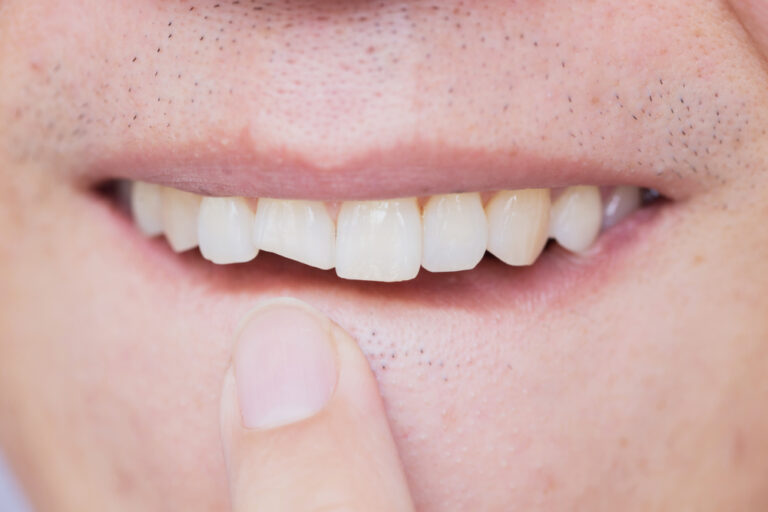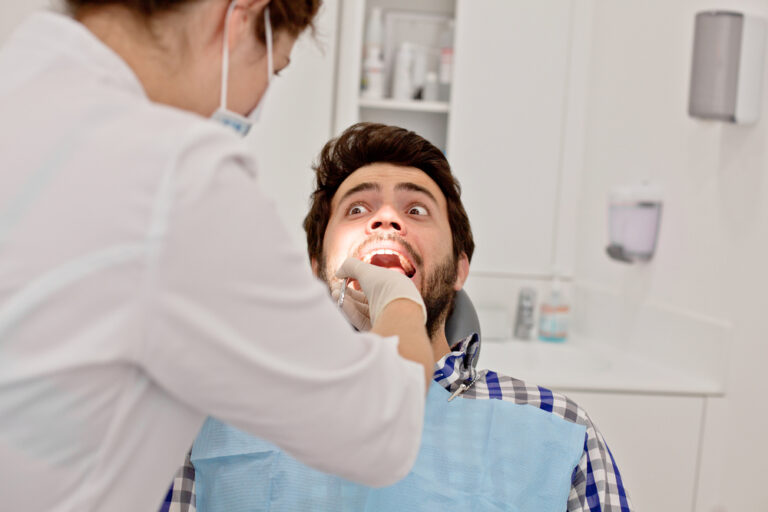The eruption of new teeth is a rite of passage in a baby’s life that every parent looks forward to. However, teething can also be an uncomfortable process for babies as their tender gums swell and ache. Some parents may notice their child developing symptoms like fever, fussiness or diarrhea and wonder if emerging new teeth are to blame. This article will take an in-depth look at whether teething truly makes babies sick.
Typical teething symptoms

Teething causes irritation in the gums as the pressure of new teeth pushing through builds. Common symptoms parents may notice include:
- Increased crying and crankiness
- Excess drooling
- Swollen, inflamed gums
- Biting or chewing behaviors to relieve discomfort
- Decreased appetite or difficulty eating
- Mild temperature elevation up to 100°F
- Rash around the mouth due to drool irritation
- Pulling at ears, which are near swelling gums
These local discomforts usually arise a few days before a tooth erupts and resolve once it breaks through the gum surface. Symptoms tend to come and go in cycles with each new tooth. While teething can cause fussiness and physical symptoms in the mouth region, serious illness is not attributed to teething alone.
Teething does not directly cause illness
Various studies have found no correlation between the eruption of primary teeth and fever or sickness. In one analysis of over 10,000 children published in Pediatrics, researchers found:
“There was no relationship between teething and fever, diarrhea, or other systemic symptoms. Teething is associated with manifestations localized to the gum pad area.”
Researchers theorize that while teething may cause localized inflammation in the gums, it does not trigger a body-wide immune response leading to systemic infection. Elevated temperatures from teething rarely surpass 100°F. High fevers are likely not attributable to teething alone but rather a coincidental infection.
Teething vs. illness symptoms
| Teething | Illness |
|---|---|
| Mildly irritable | Inconsolable crying |
| Localized gum discomfort | Body aches, headaches |
| Low appetite | Outright refusal to eat |
| Mild rash around mouth | Widespread rash |
| Clear runny nose | Thick yellow/green mucus |
| Normal bowel movements | Bloody/black stool |
| Slight drooling | Vomiting |
| Up to 100°F fever | 102°F fever or higher |
As this table demonstrates, while teething causes localized oral symptoms, signs of systemic illness like high fever, body pain, respiratory issues or GI upset are likely due to a separate health problem.
Why teething may seem related to sickness

Several factors associated with teething may inadvertently increase illness risk or perception.
Normal immune system maturation
The ages at which babies teethe overlap with when infants are losing maternal immunity and becoming susceptible to infections on their own for the first time. The timing appears connected but is coincidental.
Disrupted sleep
Fussy babies may struggle to sleep consistently while teething. Lack of sleep impairs the immune system.
Increased oral bacteria
Teeth erupting through swollen gum openings creates a pathway for oral bacteria to enter the bloodstream and potentially cause secondary infections.
Decreased nutrition
Appetite changes from teething pain may result in slightly decreased nutrition. Poor intake weakens immunity.
Excess drooling
A teether’s constant drool helps spread contagious pathogens around the body and between people.
So while no evidence shows teeth directly causing illness, several secondary effects may combine to make babies more vulnerable to infections. Parents should carefully monitor for signs of actual illness versus just teething discomfort.
Managing illness during teething
If signs of sickness emerge, parents should not dismiss symptoms as just teething but rather evaluate the following and contact the pediatrician if warranted.
Fever guidelines
Fevers under 100°F can occasionally accompany teething. But temperatures above 101°F, especially if lasting over 24 hours, warrant medical evaluation.
Dehydration
Look for signs like fewer wet diapers, excessive sleepiness, dry mouth, and sunken eyes. Push fluids and seek treatment if dehydration occurs.
Poor eating
Consult a pediatrician if babies refuse most feedings for over 24 hours or show significant weight loss. Nutrition is important for immunity.
Respiratory issues
See the doctor right away for difficulty breathing, unrelenting cough, or wheezing as these may indicate pneumonia or allergies.
Rashes
While minor diaper rashes are expected, extensive rashes, especially with fever, may be an allergic reaction or infection needing treatment.
With prompt rehydration, nutrition and medical treatment as needed, most babies recover quickly from common childhood illnesses, even while simultaneously dealing with teething discomfort. Know your pediatrician’s preferred remedies and when to seek help if sickness arises during this fussy phase.
Proving baby is sick and not just teething

Since teething does not directly cause systemic infection, how can parents know if baby is truly ill versus just having teething symptoms? Indicators of actual illness include:
- Fever over 102°F (Teething only causes up to low grade 100°F temperatures)
- Extreme fatigue, lethargy, difficulty waking
- Worsening symptoms over 3+ days
- Congested breathing, coughing up mucus
- Vomiting multiple times
- Rash spreading rapidly or with blisters/pustules
- Severe diarrhea with blood or mucus
- Uncontrollable crying, inconsolable screaming
- Shaking, tremors or convulsions
Such symptoms are highly abnormal for teething and suggest bacteria or viruses causing infection requiring medical intervention. Do not wait to contact your pediatrician if baby displays these serious signs. Prompt treatment is crucial for preventing complications of childhood infections.
Are teething and illness connected?
While scientific evidence does not support teething itself causing sickness, some indirect links exist:
Overlapping timing
Teething first occurs around 6 months when immunity shifts from maternal to infant-acquired. Illness risk also increases independently around this age.
Localized fever
The highest temperature teething alone may produce is up to 100°F from mild local gum inflammation. Higher fevers indicate illness.
Poor sleep
Disrupted naps and nighttime sleep from teething discomfort can impair immune function.
Dehydration
Reduced eating and drinking from teething distress can lead to dehydration, increasing illness susceptibility.
Drool and germs
Increased drool and skin openings around erupting teeth allow oral bacteria to spread and potentially cause secondary infections.
So while teething does not directly cause sicknesses like respiratory infections or stomach bugs, parents should take care to minimize other risks for vulnerability. Maintain diligent hand washing, sufficient hydration and nutrition, and adequate rest. Seek pediatrician evaluation for babies with fever over 100.4°F or other serious symptoms during the teething period.
Tips for preventing illness during teething
Parents cannot always prevent sickness in infants and toddlers, as exposures are often out of a caregiver’s control. However, you can minimize risks with these proactive tips while babies are teething:
- Ensure babies get all recommended vaccines to boost immune function.
- Sterilize teething toys regularly to avoid spreading germs.
- Use good hygiene when wiping away drool. Change damp shirts and bibs promptly.
- Avoid large crowds and contact with obviously sick children.
- Disinfect high touch surfaces like cribs, teething rails and toys.
- Encourage hand washing by all family members and caregivers, especially after contact with baby or saliva.
- See your pediatrician at the first sign of illness for early treatment.
- Follow doctor’s orders for isolating sick children until non-contagious.
While you cannot prevent all sickness, proactively minimizing risks is wise during the vulnerable teething period.
Answering parents’ burning questions
Still have concerns about your teething baby getting sick? Here are answers to some frequently asked questions:
Q: Can teething cause a slight temperature of 99-100°F?
A: Yes, very mild fevers up to 100°F are occasionally seen with teething due to localized gum inflammation. But higher fevers are not caused by teething alone.
Q: Should I take a sick, teething baby to the urgent care clinic?
A: Yes, if your infant has fever over 102°F, breathing struggles, or other serious symptoms beyond basic teething fussiness, prompt medical evaluation is recommended.
Q: Can emerging teeth create openings for infection?
A: Yes, when teeth break through swollen gum tissue, it can allow oral bacteria to enter the bloodstream and potentially cause secondary infections.
Q: Could teething irritation make a baby more prone to illness?
A: Although not directly causal, teething’s associations with poor sleep, dehydration, drooling, and decreased immunity may make babies somewhat more vulnerable to coincidental infections.
Q: Is medicating an ill baby for pain dangerous during teething?
A: No, using pediatrician recommended OTC pain relievers for babies over 6 months old with fever or discomfort is generally safe and appropriate. Never give aspirin to children.
Conclusion
Teething causes local mouth and gum discomfort as new teeth emerge but does not itself produce true illness or systemic infection. However, well-intentioned parents may associate the two since teething’s peak at 6-24 months coincides with the immunity transition period. While unproven to directly cause sickness, teething can lead to mild dehydration, poor sleep, and bleeding gums which may indirectly heighten vulnerability. Parents can minimize infection risks with good hygiene, nutrition, rest, vaccination and early pediatrician treatment when high fevers or other serious symptoms arise. With vigilance, parents can help babies manage the passing irritations of illness and teething discomfort as they grow.







